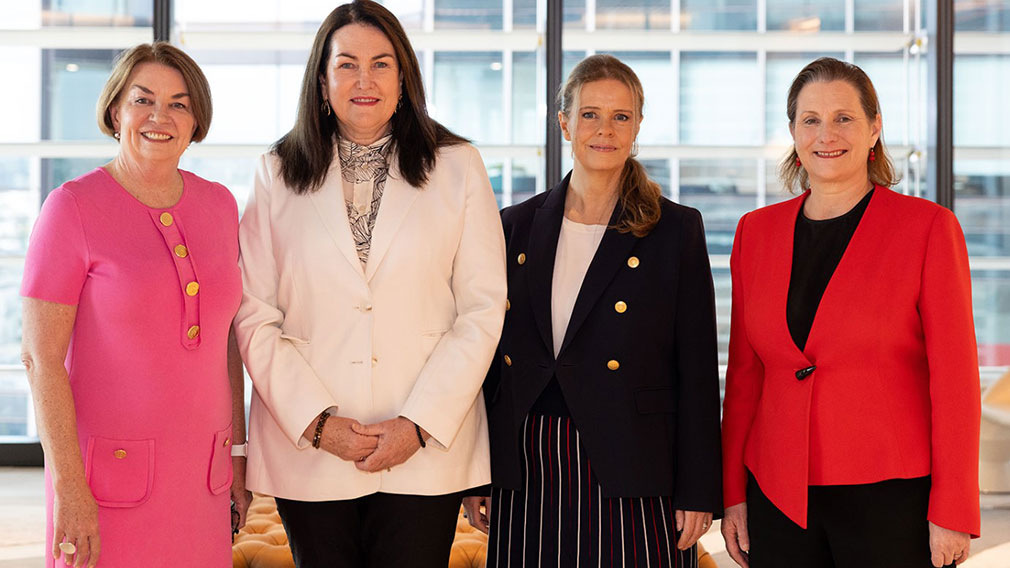No silver bullet but social bond a trailblazer

Westpac's Lyn Cobley says the social benefit bond's performance is important to attract more investment, but it's a side point relative to the impact of providing a stable family upbringing for children.
Four years ago in 2013, Westpac teamed up with the Commonwealth Bank, the NSW government and Australia’s first charity, the Benevolent Society, to issue a $10 million dollar “Social Benefit Bond”. The funds were set aside over five years to support between 300 and 400 vulnerable families across NSW avoid unnecessary removal of their children into foster care.
Australia wide, 46,000 children are in out of home care and a staggering 20,000 of them live in NSW.
Research indicates time and again that children do better in their own homes where it’s possible to keep them there. The unsettling experience of moving into out of home care can result in poor educational and mental health issues, drug and alcohol abuse, criminal behaviour and teenage pregnancies as the social issues are simply passed onto the next generation.
According to the latest Productivity Commission figures, $4.3 billion is spent nationally on child protection, out-of-home care services and intensive family support. This equates to $66,000 per year per child.
Solving this problem requires innovative solutions, designed to work for Australian families and within Australian systems.
The good news is we have found a way to do this. Over the four year life of the bond to June 30, 2017, the Benevolent Society’s Intensive Family Support service achieved an 89 per cent preservation rate (children remain home with parents) for families referred to the program. This makes it among the strongest performing intensive family preservation services in the world.
This program has powerfully and positively impacted hundreds of families and changed the life trajectory of the children.
As a director of the Westpac Foundation, one of the investors in this bond, I’m very pleased in the financial outcomes the bond has achieved.
Next year, in 2018, it will be the first social benefit bond to mature in Australia. And at this rate its performance is returning a better yield than many other investments in the current environment.
This is important to attract more investment to the sector. But the reality is the capital gains are only a side point. For the 289 at risk families referred to the program, the support services have seen the lives of many children changed for the better. Coming from a large, close-knit family, I have experienced first-hand the benefits of a stable and loving family upbringing. I have also experienced the legacy it creates as I take the responsibility to pass this onto the next generation through my own children.
Now with the bond in its penultimate year, it offers the opportunity for momentum in impact investment to continue.
And the time has never been better. Impact investing is taking off globally. In Australia, ten social benefit bonds have been issued since 2013 (six in NSW, three in Queensland and one in South Australia).
Impact Investing Australia is forecasting the future value of the broader social capital market at $32 billion by 2024. Impact bonds form only part of this but the question remains – how can we reach this scale?
According to Social Ventures Australia, one of the main barriers remains the lack of large-scale, investment-ready opportunities. Many large-scale social issues don’t have obvious, economically viable solutions. Instead, creative solutions are often required, and these take time, expertise and funding to develop.
The good news is, banks like Westpac are dedicating pro-bono resources on the structuring side, investors have capital to allocate, all sides of politics are on-board and the non-profit service providers are becoming more sophisticated with governance structures and outcomes based tracking. The catalysts are in play and everyone is keen to progress change.
There is no simple answer but the lessons from this bond indicate the potential and that momentum is heading in the right direction.
The Benevolent Society has developed a workable framework that can be applied by other programs to achieve similar results. Business, government and the non-profit sector have proven we can work together to tackle this longstanding social issue.


